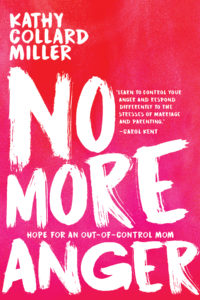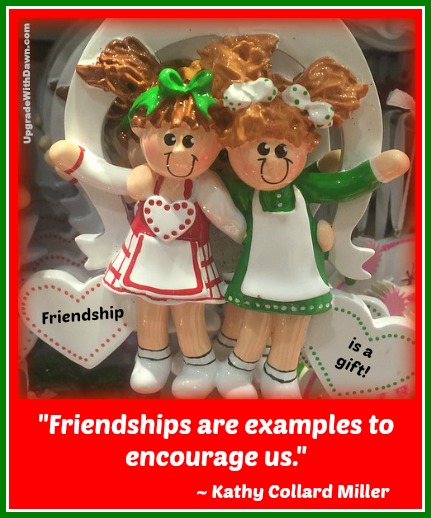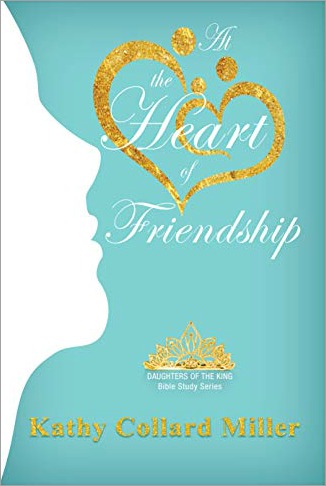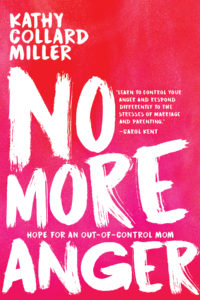I Don't Like Correction, but It's Good for Me
Kathy Collard Miller is a wise woman. She writes much about the heart and how to please the Lord. In this Biblical Thinking UPGRADE, she encourages us to see God's correction through a biblical grid.

“If we can see the value of being corrected by God,” Kathy says, “we will be much more receptive to receiving His love through it.”
I (Dawn) have never much liked being corrected. It was a pride thing. But shortly after I became a Christ-follower, I learned about the love motivating my Heavenly Father whenever He corrected me. In a life story, Kathy writes about how the Lord helped her understand His loving correction.
Kathy continues . . .
Years ago, I remember feeling guilty about not giving my toddler daughter enough attention, but I didn’t know how to change.
Then one day the water bottle man dropped off a five-gallon glass bottle for us to use later. As I watched a soap opera on TV, I looked over at my two-year-old daughter who played near the bottle. I thought, “She can’t possibly be strong enough to push over that bottle.”
Then she pushed on it.
Over it went and the bottle shattered, spilling five gallons of water onto the carpet.
For once I didn’t get angry at my toddler. I realized I had the problem, not my toddler, and God was gently correcting me about my lack of attention to my daughter.
In the future, when I was tempted to watch television at the exclusion of my daughter’s needs, I remembered that glass bottle. I also reminded myself God wasn’t wanting to punish me but teach me how to be the good mom I wanted to be.
The Bible tells us a lot about being corrected. We can learn He intends our good.
1. Receiving correction shows you are smart!
I don’t like to be thought of as stupid. I’ve been bothered by that since childhood mainly because being stupid seemed to get me in trouble. I concluded, “If I’m not seen as stupid, I won’t get in trouble!
Interestingly, Proverbs 12:1 tells us,
“Whoever loves discipline loves knowledge, but he who hates reproof is stupid.”
I didn’t know that principle when I resisted anger after the water bottle incident. Now I see God was showing me my sinful escape method of soap operas! I was smart to learn to pay more attention to my daughter.
2. God corrects us in many different ways, even painful ones.
God’s correction may not always seem evident, because we can interpret His loving action as harmful.
He can correct us through the words of others, through unwelcome circumstances, or as He gives insights into our past wrong choices. Correction might be involved anytime we stop and evaluate: “Is my response godly and glorifying to God?”
James 1:2-3 tells us,
“Count it all joy, my brothers, when you meet trials of various kinds, for you know that the testing of your faith produces steadfastness.”
We may not like that verse because trials are not fun, but God intends to use something difficult to bring the good results He wants—our holiness for our good.
3. Being corrected is a gift from God offering a sense of love.
Children rarely say, “Thank you, mom, for giving me that correction. I’ll be happier because of it.” But that is exactly what God wants to hear from us.
We may not see it at the time, but God's correction helps us feel loved and valued.
Hebrews 12:5-6 assures us,
“My son, do not regard lightly the discipline of the Lord, nor be weary when reproved by him. For the Lord disciplines the one he loves, and chastises every son whom he receives.”
The next time you recognize God’s correction, you can actually tell yourself, “God is loving me!"
4. Correction helps us see when we are at fault.
Every one of us has a tendency to blame someone else for why we were unloving, unkind, unwise and a host of other ungodly reactions.
A miserable person is one who never takes responsibility. She never learns to make better choices resulting in her own joy, peace, patience, and self-control, and the good of others.
Proverbs 19:3 verifies that.
“When a man's folly brings his way to ruin, his heart rages against the Lord.”
Let’s stop blaming God for our own choices. You will better know how to change and avoid ruin.
Being corrected doesn’t seem positive at the time, but as we change our attitudes about it, we will:
- gain wisdom,
- value God’s involvement in our lives,
- feel more loved, and
- take responsibility for our actions.
Those choices will result in our good and the good of others.
What lie have you believed about being corrected? What truth would you like to replace it with?
Kathy Collard Miller is the author of over 50 books, her most recent is Heart Wisdom: Daughters of the
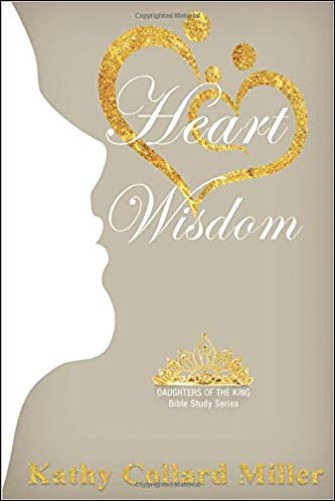 King Bible Study Series (Elk Lake Publishing, Inc.). She loves to speak at events and has spoken in over 30 US states and 8 foreign countries. Visit her website.
King Bible Study Series (Elk Lake Publishing, Inc.). She loves to speak at events and has spoken in over 30 US states and 8 foreign countries. Visit her website.
Graphic of water jug - 20 Canada Drinking water jug - offered at Wayfair.
 Post a Comment → Posted on
Post a Comment → Posted on  Tuesday, August 20, 2019 at 8:50AM
Tuesday, August 20, 2019 at 8:50AM  Choices,
Choices,  Correction,
Correction,  God's Correction,
God's Correction,  God's love,
God's love,  Kathy Collard Miller,
Kathy Collard Miller,  UUpgrade with Dawn Upgrade Your Life
UUpgrade with Dawn Upgrade Your Life  Biblical Thinking
Biblical Thinking 









